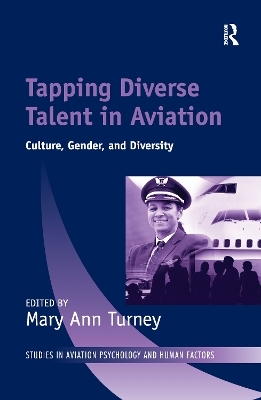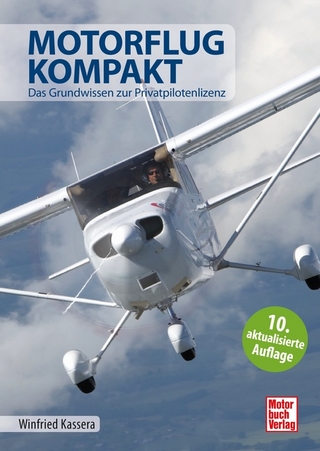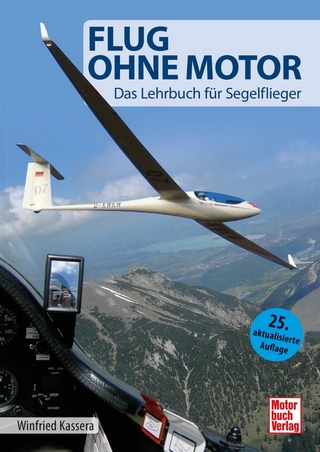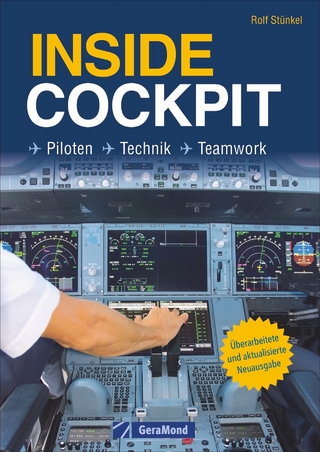
Tapping Diverse Talent in Aviation
Routledge (Verlag)
978-1-138-25859-4 (ISBN)
It has seldom been more critical for the aviation industry to evaluate the future employee talent pool. Projected skills shortages, new security concerns, and the cost of training have generated a pressing need for aviation training professionals to find and develop new and diverse talent - capable of safe, informed and accurate communication. This intelligent and topical new book provides succinct and authoritative research-based information to assist decision-makers plan the changes required to training facilities, materials and methods, and in the reinforcement and assessment of the training environment itself. It will spark considerable interest among airline management personnel, collegiate flight training programs, military training contractors, and governmental agencies and serve as a text for collegiate aviation programs and as a valuable knowledge base reference for practitioners. Including comprehensive data on future world workforce composition and demographic projections for the next decade, it examines the key issues of increasing cultural diversity and the measures required in the training of women and minorities. Topics covered include: culture and inter-group relationships; values and orientation in mixed crews; non-native English speakers; gender, leadership, and training; learning styles and preferences; mentoring and role models; learning style preferences and training outcomes; and nonverbal communication.
Mary Ann Turney is Associate Professor at the College of Technology and Applied Science, Arizona State University.
Contents: Part I: Diversity: Tapping diverse talent: a must for the new century, Mary Ann Turney and Robert F. Maxant; Values and orientation differ in mixed crews, Mary Ann Turney; Teaching non-native English speakers: challenges and strategies, Irene Henley and Wayne Daly; Learning style preferences affect training outcomes, Merrill R. Karp; Women's learning and leadership styles: implications for air crews, Mary Ann Turney and James C. Bishop; Gender differences in learning to fly, Ruth Lowe Sitler. Part II: Language: ICAO language proficiency requirements, Elizabeth Mathews; The efficacy of standard aviation English, Robert F. Ripley and James L. Fitch; Reflexive communication in the multi-cultural crew, Taras Stratechuk and Ted Beneigh; Humor, stories and cultural context, Mary Ann Turney; The music is the messgae: prosody in aviation discourse, Marsha Hunter; Nonverbal cues 'speak' volumes, Mary Ann Turney; Protocols, rank and social status influence communication, Mary Ann Turney. Part III: Environment: 'Who are you calling a safety threat?' A debate on safety in mono-cultural versus multi-cultural cockpits, Ashleigh Merritt and Surendra Ratwatte; Inclusive versus exclusive strategies in aviation training, Mary Ann Turney, Irene Henley, Mary Niemczyk and William K. McCurry; Ergonomics and diversity, Patricia C. Fitzgerald; Clash of subcultures in on-gate communication, Christy Armentrout-Brazee and Marifran Mattson; Making everyone part of the team: a model, Merrill R. Karp and Mary Ann Turney; Index.
| Erscheinungsdatum | 07.01.2017 |
|---|---|
| Reihe/Serie | Studies in Aviation Psychology and Human Factors |
| Verlagsort | London |
| Sprache | englisch |
| Maße | 156 x 234 mm |
| Gewicht | 358 g |
| Themenwelt | Natur / Technik ► Fahrzeuge / Flugzeuge / Schiffe ► Luftfahrt / Raumfahrt |
| Technik ► Fahrzeugbau / Schiffbau | |
| Technik ► Luft- / Raumfahrttechnik | |
| Technik ► Umwelttechnik / Biotechnologie | |
| ISBN-10 | 1-138-25859-8 / 1138258598 |
| ISBN-13 | 978-1-138-25859-4 / 9781138258594 |
| Zustand | Neuware |
| Haben Sie eine Frage zum Produkt? |
aus dem Bereich


